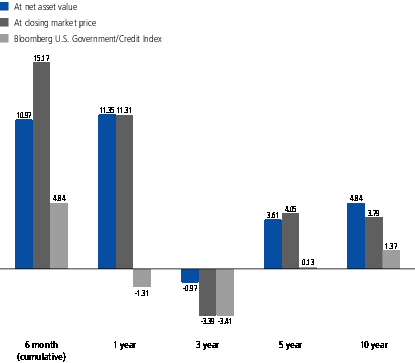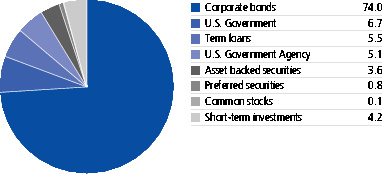other securities markets. In recent years, the U.S. renegotiated many of its global trade relationships and imposed or threatened to impose significant import tariffs. These actions could lead to price volatility and overall declines in U.S. and global investment markets.
Uncertainties surrounding the sovereign debt of a number of European Union (EU) countries and the viability of the EU have disrupted and may in the future disrupt markets in the United States and around the world. If one or more countries leave the EU or the EU dissolves, the global securities markets likely will be significantly disrupted. On January 31, 2020, the United Kingdom (UK) left the EU, commonly referred to as “Brexit,” the UK ceased to be a member of the EU, and the UK and EU entered into a Trade and Cooperation Agreement. While the full impact of Brexit is unknown, Brexit has already resulted in volatility in European and global markets. There remains significant market uncertainty regarding Brexit’s ramifications, and the range and potential implications of possible political, regulatory, economic, and market outcomes are difficult to predict.
A widespread health crisis such as a global pandemic could cause substantial market volatility, exchange trading suspensions and closures, which may lead to less liquidity in certain instruments, industries, sectors or the markets generally, and may ultimately affect fund performance. For example, the coronavirus (COVID-19) pandemic has resulted and may continue to result in significant disruptions to global business activity and market volatility due to disruptions in market access, resource availability, facilities operations, imposition of tariffs, export controls and supply chain disruption, among others. While many countries have lifted some or all restrictions related to the coronavirus (COVID-19) and the United States ended the public health emergency and national emergency declarations relating to the coronavirus (COVID-19) pandemic on May 11, 2023, the continued impact of coronavirus (COVID-19) and related variants is uncertain. The impact of a health crisis and other epidemics and pandemics that may arise in the future, could affect the global economy in ways that cannot necessarily be foreseen at the present time. A health crisis may exacerbate other pre-existing political, social and economic risks. Any such impact could adversely affect the fund’s performance, resulting in losses to your investment.
Political and military events, including in Ukraine, North Korea, Russia, Venezuela, Iran, Syria, and other areas of the Middle East, and nationalist unrest in Europe and South America, also may cause market disruptions.
As a result of continued political tensions and armed conflicts, including the Russian invasion of Ukraine commencing in February of 2022, the extent and ultimate result of which are unknown at this time, the United States and the EU, along with the regulatory bodies of a number of countries, have imposed economic sanctions on certain Russian corporate entities and individuals, and certain sectors of Russia’s economy, which may result in, among other things, the continued devaluation of Russian currency, a downgrade in the country’s credit rating, and/or a decline in the value and liquidity of Russian securities, property or interests. These sanctions could also result in the immediate freeze of Russian securities and/or funds invested in prohibited assets, impairing the ability of the fund to buy, sell, receive or deliver those securities and/or assets. These sanctions or the threat of additional sanctions could also result in Russia taking counter measures or retaliatory actions, which may further impair the value and liquidity of Russian securities. The United States and other nations or international organizations may also impose additional economic sanctions or take other actions that may adversely affect Russia-exposed issuers and companies in various sectors of the Russian economy. Any or all of these potential results could lead Russia’s economy into a recession. Economic sanctions and other actions against Russian institutions, companies, and individuals resulting from the ongoing conflict may also have a substantial negative impact on other economies and securities markets both regionally and globally, as well as on companies with operations in the conflict region, the extent to which is unknown at this time. The United States and the EU have also imposed similar sanctions on Belarus for its support of Russia’s invasion of Ukraine. Additional sanctions may be imposed on Belarus and other countries that support Russia. Any such sanctions could present substantially similar risks as those resulting from the sanctions imposed on Russia, including substantial negative impacts on the regional and global economies and securities markets.
In addition, there is a risk that the prices of goods and services in the United States and many foreign economies may decline over time, known as deflation. Deflation may have an adverse effect on stock prices and creditworthiness and may make defaults on debt more likely. If a country’s economy slips into a deflationary









